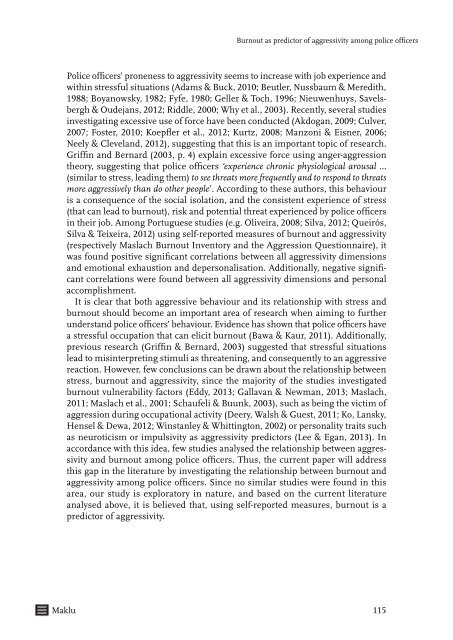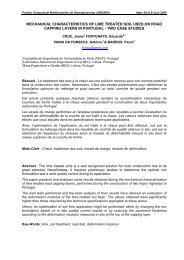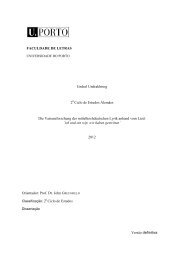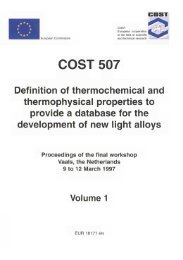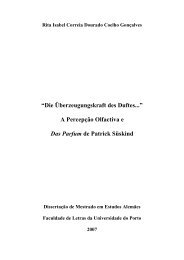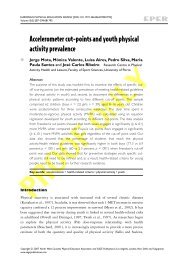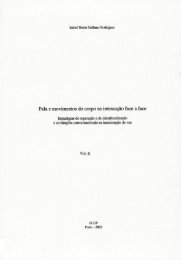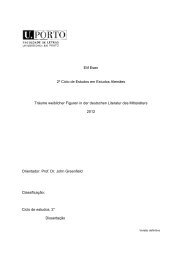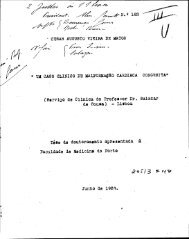Burnout as predictor of aggressivity among police officers
Burnout as predictor of aggressivity among police officers
Burnout as predictor of aggressivity among police officers
You also want an ePaper? Increase the reach of your titles
YUMPU automatically turns print PDFs into web optimized ePapers that Google loves.
<strong>Burnout</strong> <strong>as</strong> <strong>predictor</strong> <strong>of</strong> <strong>aggressivity</strong> <strong>among</strong> <strong>police</strong> <strong>of</strong>ficers<br />
Police <strong>of</strong>ficers’ proneness to <strong>aggressivity</strong> seems to incre<strong>as</strong>e with job experience and<br />
within stressful situations (Adams & Buck, 2010; Beutler, Nussbaum & Meredith,<br />
1988; Boyanowsky, 1982; Fyfe, 1980; Geller & Toch, 1996; Nieuwenhuys, Savelsbergh<br />
& Oudejans, 2012; Riddle, 2000; Why et al., 2003). Recently, several studies<br />
investigating excessive use <strong>of</strong> force have been conducted (Akdogan, 2009; Culver,<br />
2007; Foster, 2010; Koepfler et al., 2012; Kurtz, 2008; Manzoni & Eisner, 2006;<br />
Neely & Cleveland, 2012), suggesting that this is an important topic <strong>of</strong> research.<br />
Griffin and Bernard (2003, p. 4) explain excessive force using anger-aggression<br />
theory, suggesting that <strong>police</strong> <strong>of</strong>ficers ‘experience chronic physiological arousal …<br />
(similar to stress, leading them) to see threats more frequently and to respond to threats<br />
more aggressively than do other people’. According to these authors, this behaviour<br />
is a consequence <strong>of</strong> the social isolation, and the consistent experience <strong>of</strong> stress<br />
(that can lead to burnout), risk and potential threat experienced by <strong>police</strong> <strong>of</strong>ficers<br />
in their job. Among Portuguese studies (e.g. Oliveira, 2008; Silva, 2012; Queirós,<br />
Silva & Teixeira, 2012) using self-reported me<strong>as</strong>ures <strong>of</strong> burnout and <strong>aggressivity</strong><br />
(respectively M<strong>as</strong>lach <strong>Burnout</strong> Inventory and the Aggression Questionnaire), it<br />
w<strong>as</strong> found positive significant correlations between all <strong>aggressivity</strong> dimensions<br />
and emotional exhaustion and depersonalisation. Additionally, negative significant<br />
correlations were found between all <strong>aggressivity</strong> dimensions and personal<br />
accomplishment.<br />
It is clear that both aggressive behaviour and its relationship with stress and<br />
burnout should become an important area <strong>of</strong> research when aiming to further<br />
understand <strong>police</strong> <strong>of</strong>ficers’ behaviour. Evidence h<strong>as</strong> shown that <strong>police</strong> <strong>of</strong>ficers have<br />
a stressful occupation that can elicit burnout (Bawa & Kaur, 2011). Additionally,<br />
previous research (Griffin & Bernard, 2003) suggested that stressful situations<br />
lead to misinterpreting stimuli <strong>as</strong> threatening, and consequently to an aggressive<br />
reaction. However, few conclusions can be drawn about the relationship between<br />
stress, burnout and <strong>aggressivity</strong>, since the majority <strong>of</strong> the studies investigated<br />
burnout vulnerability factors (Eddy, 2013; Gallavan & Newman, 2013; M<strong>as</strong>lach,<br />
2011; M<strong>as</strong>lach et al., 2001; Schaufeli & Buunk, 2003), such <strong>as</strong> being the victim <strong>of</strong><br />
aggression during occupational activity (Deery, Walsh & Guest, 2011; Ko, Lansky,<br />
Hensel & Dewa, 2012; Winstanley & Whittington, 2002) or personality traits such<br />
<strong>as</strong> neuroticism or impulsivity <strong>as</strong> <strong>aggressivity</strong> <strong>predictor</strong>s (Lee & Egan, 2013). In<br />
accordance with this idea, few studies analysed the relationship between <strong>aggressivity</strong><br />
and burnout <strong>among</strong> <strong>police</strong> <strong>of</strong>ficers. Thus, the current paper will address<br />
this gap in the literature by investigating the relationship between burnout and<br />
<strong>aggressivity</strong> <strong>among</strong> <strong>police</strong> <strong>of</strong>ficers. Since no similar studies were found in this<br />
area, our study is exploratory in nature, and b<strong>as</strong>ed on the current literature<br />
analysed above, it is believed that, using self-reported me<strong>as</strong>ures, burnout is a<br />
<strong>predictor</strong> <strong>of</strong> <strong>aggressivity</strong>.<br />
Maklu 115


